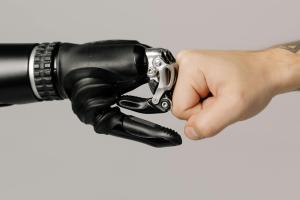AI in Coding, Part 8: Future-Proofing Your Career (Skills Engineers Need in the Age of AI)
Part 8: The final guide to thriving as an engineer in the AI era. Six essential skills to future-proof your career and stay valuable as AI transforms coding.

AI probably won’t take your job. But another engineer who knows how to use AI might. That’s the reality of the next decade in software engineering. The most valuable developers won’t be the ones who can type the fastest or remember the most syntax: they’ll be the ones who know how to guide AI, catch its mistakes, and use it to amplify their impact.
Here’s how to prepare.
1. Strengthen Your Foundations
If AI can generate code, what’s left for you? The hard parts:
- Designing scalable architectures.
- Understanding algorithms and data structures.
- Applying CS fundamentals to real world constraints.
These skills make you the person who can guide AI to generate the right thing: not just a thing that compiles.
2. Learn to Orchestrate AI
Think of AI tools as teammates. To get the most out of them, you need to:
- Write prompts that are clear and scoped.
- Chain tasks effectively (break big problems into AI-sized steps).
- Know which tool is best for which stage of the workflow.
Prompt engineering isn’t just a buzzword: it’s the new literacy of our field.
3. Build a Security and Testing Mindset
AI can write insecure code as confidently as secure code. That means your role as a developer includes being the gatekeeper.
- Always run static analysis, linting, and security scans.
- Treat AI-generated code as unreviewed PRs from a junior dev.
- Build automated tests and CI/CD pipelines to catch mistakes early.
The engineers who thrive will be the ones who combine speed with safety nets.
4. Develop Domain Expertise
As coding itself gets commoditized, knowing the problem space will matter more than ever.
- Finance, healthcare, logistics, manufacturing: each has unique rules and risks.
- AI won’t understand these on its own; you will.
- The best engineers will be those who blend technical fluency with deep domain knowledge.
5. Think Beyond Code
Software isn’t just about features anymore. It’s about users, products, and outcomes. Engineers who thrive will be those who:
- Collaborate across functions (design, product, operations).
- Ask “What problem are we solving?” before asking “What framework should we use?”.
- Bring a product mindset, not just a coding mindset.
6. Stay Curious and Keep Learning
The AI landscape changes fast. Models improve, new tools emerge, old ones fade. You don’t need to master every new release, but you do need to stay curious and adaptable.
- Experiment with new tools, but don’t chase hype.
- Focus on understanding what the models are capable of, not memorizing which tool wraps them.
- Keep your learning loop active: build, test, reflect, refine.
Putting It All Together
If you combine strong fundamentals, AI orchestration, security awareness, domain knowledge, and a product mindset, you’ll be in the top tier of engineers in the AI era.
It’s less about competing with AI, and more about collaborating with it better than anyone else.
✅ Key Takeaway
The age of AI in coding doesn’t eliminate the need for engineers. It redefines what makes them valuable. Future-proof yourself by doubling down on fundamentals, learning to guide AI effectively, and bringing product and domain expertise to the table.
This article is part of my series “AI in Coding – From Past to Future.”
🎥 Watch the Full Lecture
For a deeper dive into this topic, watch my complete presentation on AI in software development:
Note: The introduction is in Bosnian, but the main lecture is in English and starts around the 3-minute mark.
This lecture covers all the topics in this series and provides additional insights and Q&A.
Full Series:
- Part 1: From Lisp to Copilot: The Evolution of AI in Software Development
- Part 2: AI Tools Every Engineer Should Know in 2025
- Part 3: Best Practices for Working with Your New Junior Developer
- Part 4: I Let AI Build BigToFit.com During My Lecture
- Part 5: How Far We’ve Come in Just 3 Years
- Part 6: The Next 10 Years of Software Development
- Part 7: Will AI Replace Programmers?
- Part 8: Future-Proofing Your Career (this post)
🎯 Series Complete! Thank you for following along with this journey from the history of AI in coding to practical career guidance for the future.
Which of these six skills resonates most with your current career goals? Are you already working on any of these areas, or do you see gaps you want to address? I’d love to hear about your own career future-proofing strategy and what you’re focusing on as AI transforms our field.

Irhad Babic
Practical insights on engineering management, AI applications, and product building from a hands-on engineering leader and manager.


